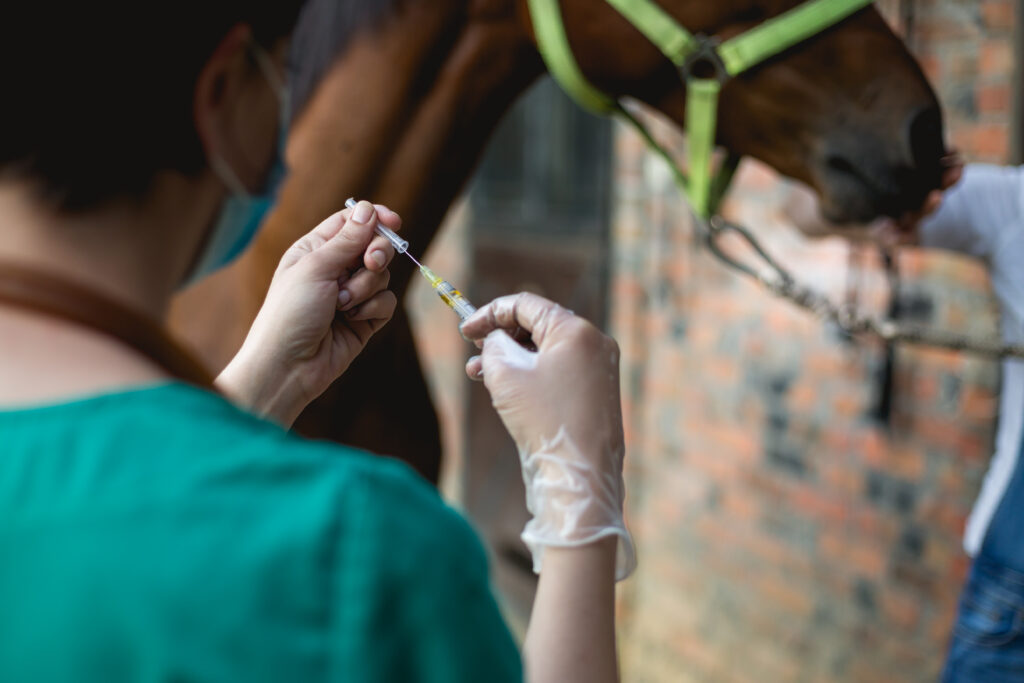
There is always a time and a place for conscientious use of antimicrobial drugs (AMDs) in equine practice. One research report focused not just on the benefits of specific drugs commonly used but also looked at some potential side-effects, of which practitioners should be aware when formulating a treatment plan [Khusro, A.; Aarti, C.; Buendia-Rodriguez, G.; et al. Adverse Effect of Antibiotics Administration on Horse Health: An Overview. Journal of Equine Veterinary Science 2021, vol. 97; https://doi.org/10.1016/j.jevs.2020.103339].
A summary of potential adverse effects of antimicrobial drugs in equine medicine is included below:
- Penicillin: Excitement; seizure-like activity; muscle soreness; focal myositis; respiratory difficulty; diarrhea; head shaking; teeth grinding; salivation; lacrimation; mild colic; passage of soft feces; colitis.
- Ampicillin: Irritation and AMD-associated colitis.
- Ceftiofur: Discomfort; irritation; diarrhea; colitis.
- Aminoglycosides: Nephrotoxicity; ototoxicity; muscle irritation.
- Sulfa-Trimethoprim: Diarrhea; colitis; tremor; excitement; ataxia; cardiovascular collapse; hypersensitivity reaction; dysrhythmia; hypotension; pruritus.
- Rifampin: Orange stain to urine; anorexia; fecal softening; false elevation of liver enzymes.
- Erythromycin: Colitis; diarrhea; fever; hepatobiliary toxicity.
- Enrofloxacin: Non-inflammatory arthropathy; tendon weakening and rupture; ataxia; severe oral ulceration; colitis; transient neurologic behaviors. Should not be used on mares in early pregnancy due to chondrotoxic effects.
- Tetracyclines: Renal tubular necrosis; hypotension; AMD-associated colitis.
- Chloramphenicol: Anemia and pancytopenia.
- Metronidazole: Depression; weakness; ataxia; vestibular signs; seizures; peripheral neuropathy; anorexia.
- Vancomycin: Irritation.
The authors urge judicious use of antimicrobial drugs in equine medicine with consideration to combinations, formulations, routes of administration and dosages in order to mitigate the risk of adverse effects on horses.
Editor’s note: Check out these articles related to antimicrobial drugs:








